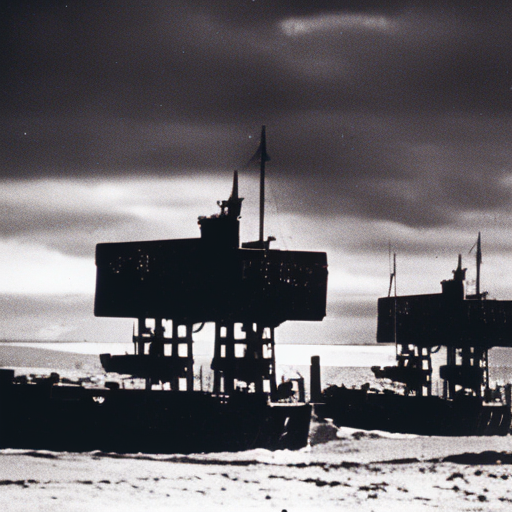Battle of the Falkland Islands: A Decisive Naval Encounter in World War I
The Battle of the Falkland Islands was a significant naval engagement that took place during World War I on December 8, 1914. It was fought between the British Royal Navy and the Imperial German Navy in the South Atlantic Ocean near the Falkland Islands, a British territory. The battle resulted in a decisive victory for the British, eliminating the German threat in the South Atlantic and boosting British morale.
Background
At the outbreak of World War I, Germany had established a network of armed merchant raiders, which were disguised as civilian ships but carried weapons to attack enemy vessels. One such raider was the SMS Emden, commanded by Captain Karl von Müller. The Emden had been wreaking havoc on British shipping in the Indian Ocean and had become a significant threat to British interests in the region.
In response to the German threat, the British dispatched a task force led by Vice Admiral Sir Doveton Sturdee to neutralize the Emden and protect British shipping routes. The task force consisted of two battlecruisers, HMS Invincible and HMS Inflexible, along with several other warships.
The Battle
On December 8, 1914, the British task force encountered the German squadron, led by Vice Admiral Maximilian von Spee, near the Falkland Islands. The German squadron consisted of five cruisers, including the Emden, and two supply ships. The British battlecruisers engaged the German ships, while the other British warships pursued the fleeing German supply ships.
The battle was heavily one-sided in favor of the British. The superior speed and firepower of the British battlecruisers quickly overwhelmed the German cruisers. Within a few hours, all five German cruisers were sunk, and only one British warship, HMS Kent, sustained significant damage. The Emden, which had been separated from the rest of the German squadron, was later hunted down and destroyed by the Australian cruiser HMAS Sydney.
Aftermath
The Battle of the Falkland Islands was a resounding victory for the British. It eliminated the German threat in the South Atlantic and avenged the sinking of the British cruisers HMS Good Hope and HMS Monmouth, which had been lost in the Battle of Coronel a month earlier. The battle also boosted British morale, as it demonstrated the Royal Navy’s ability to protect British interests and defeat the German Navy.
The British victory had significant strategic implications. It ensured the safety of British shipping routes in the South Atlantic and prevented Germany from establishing a base in the region. Additionally, it allowed the British to maintain control over the Falkland Islands, which served as an important refueling station for British ships.
The Battle of the Falkland Islands also had political consequences. The defeat of the German squadron led by von Spee was a blow to German prestige and raised questions about the effectiveness of the German Navy. It also highlighted the vulnerability of German naval forces operating far from their home bases.
In conclusion, the Battle of the Falkland Islands was a decisive naval engagement that took place during World War I. The British victory eliminated the German threat in the South Atlantic, protected British shipping routes, and boosted British morale. It also had significant strategic and political implications, ensuring the safety of British interests in the region and dealing a blow to German prestige.












